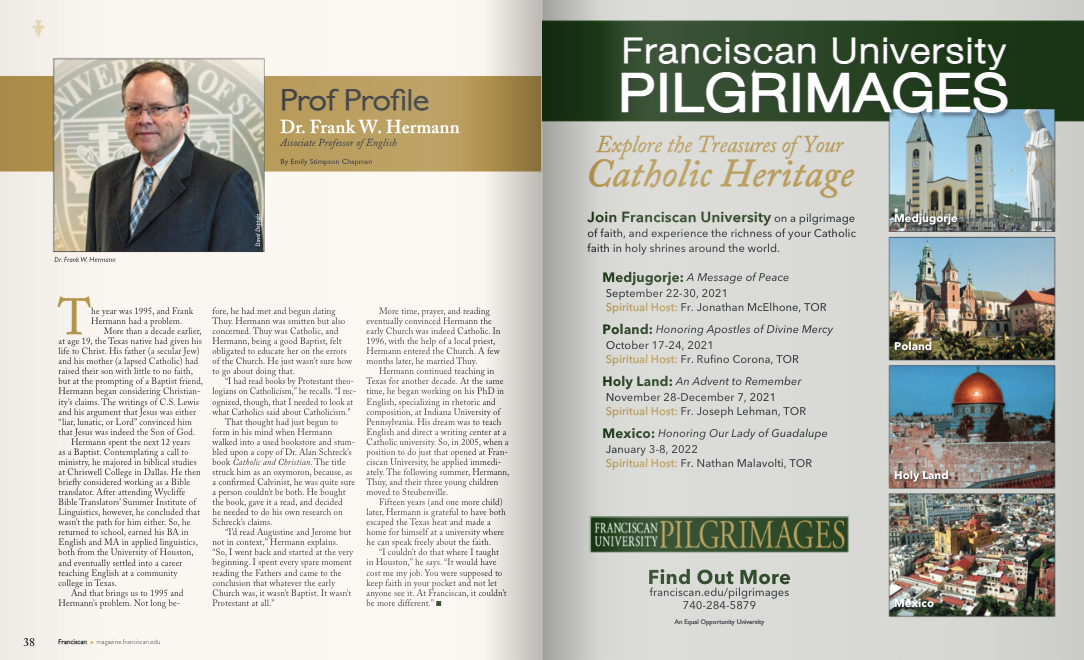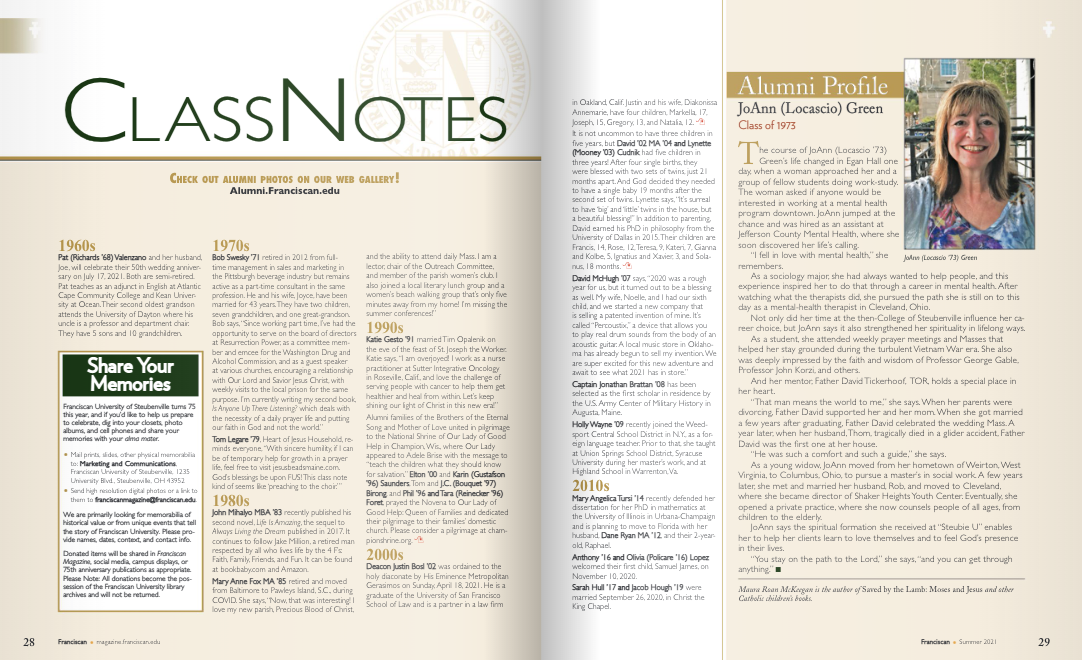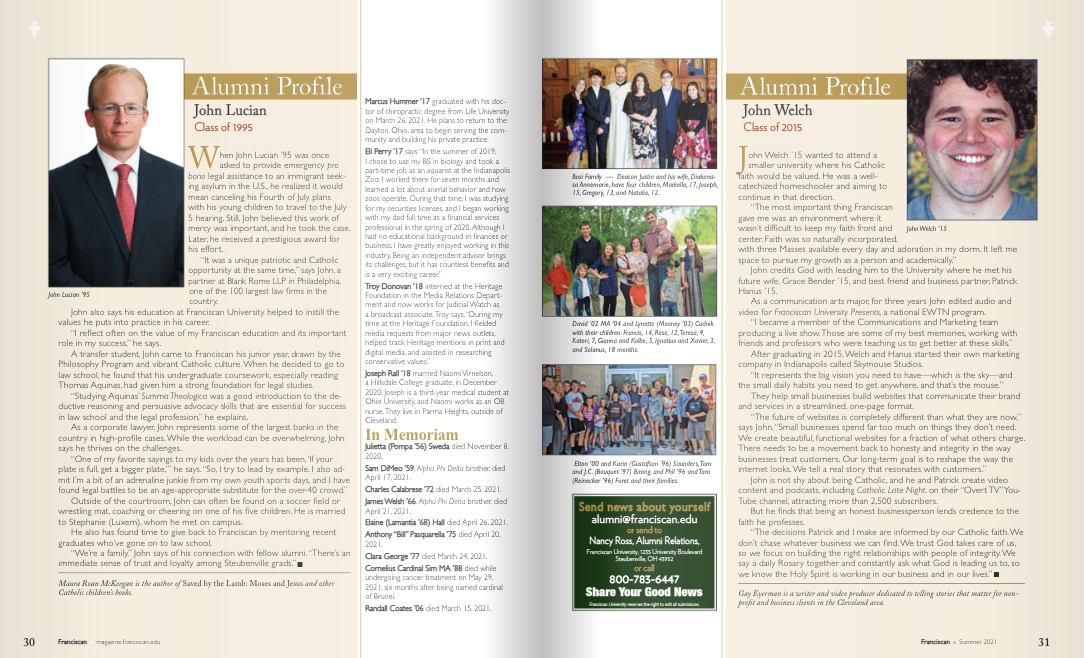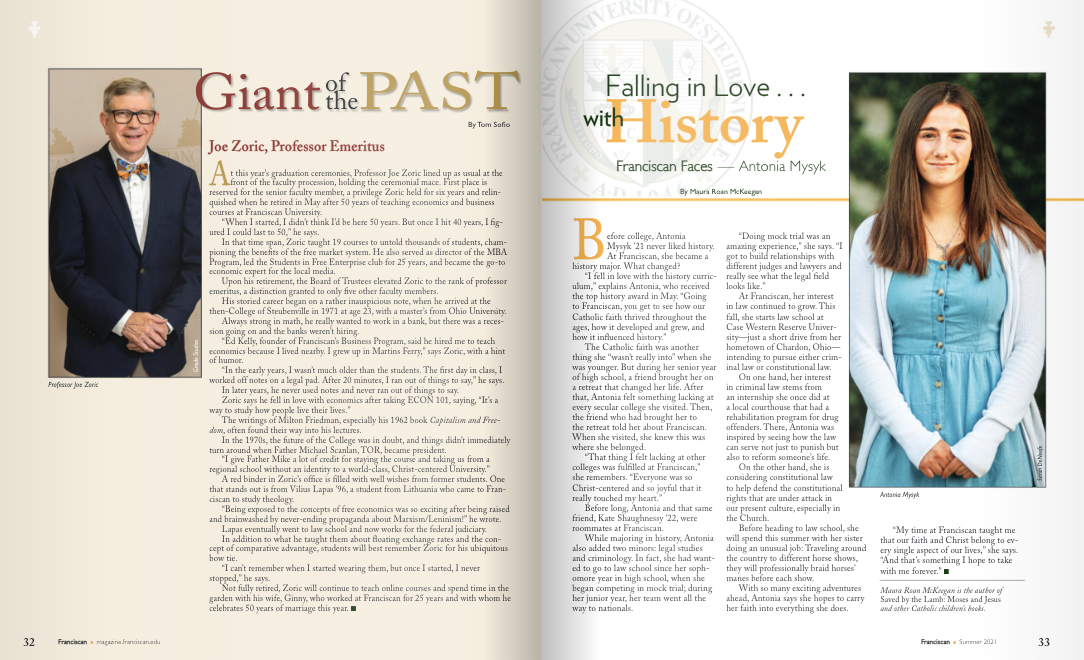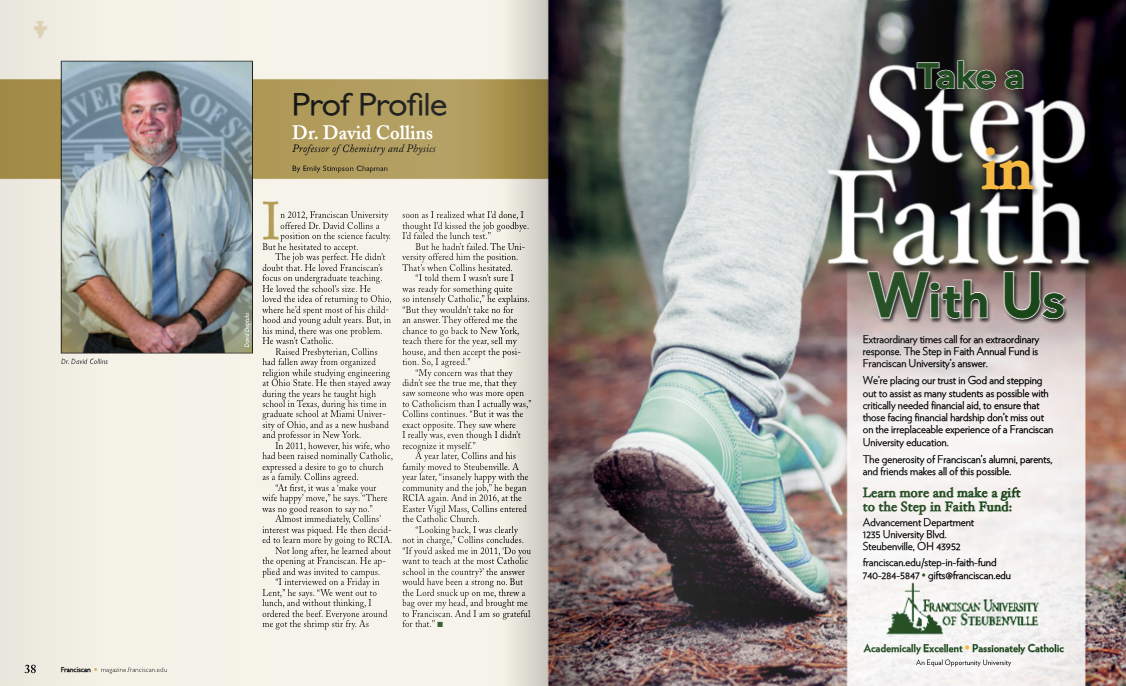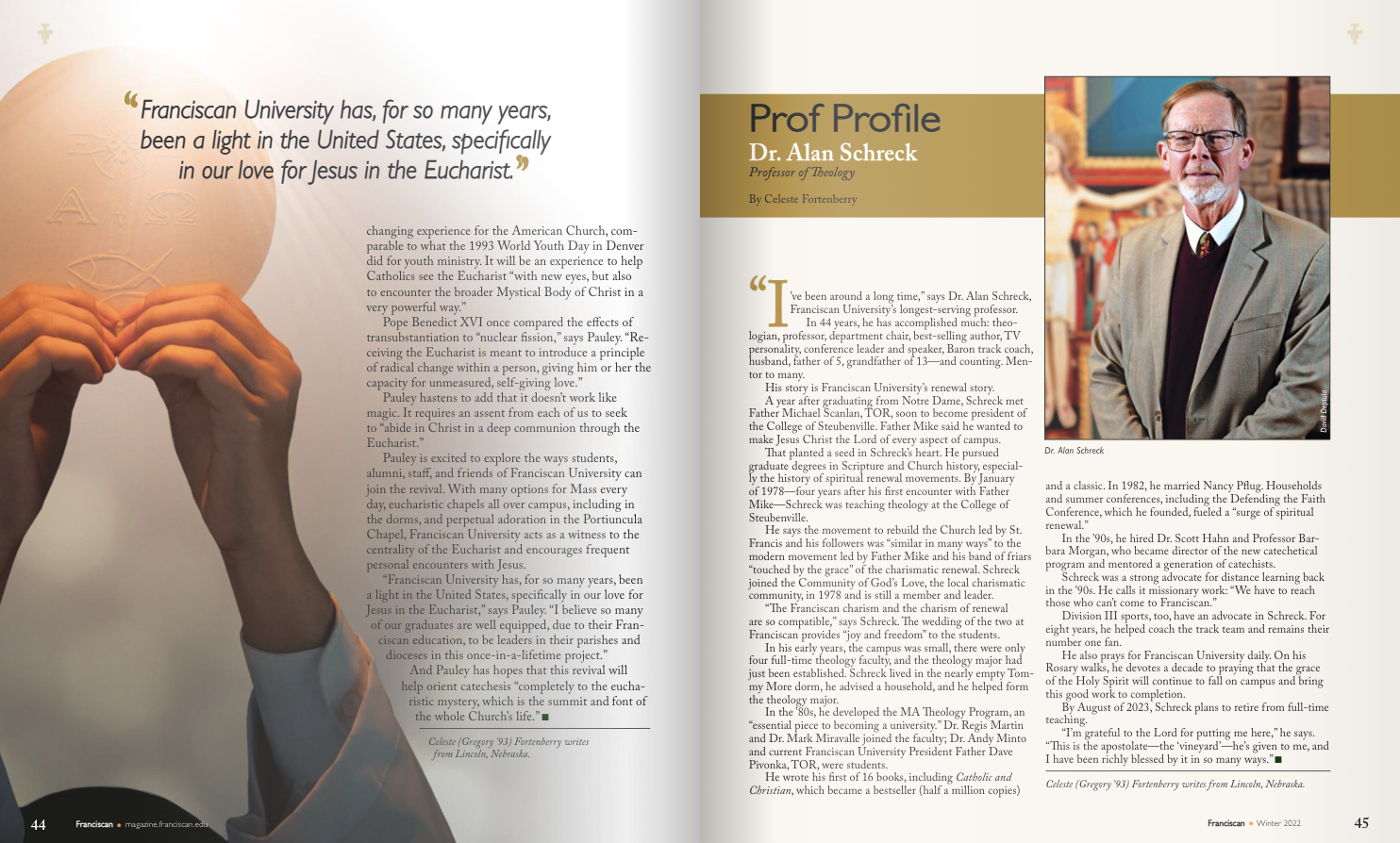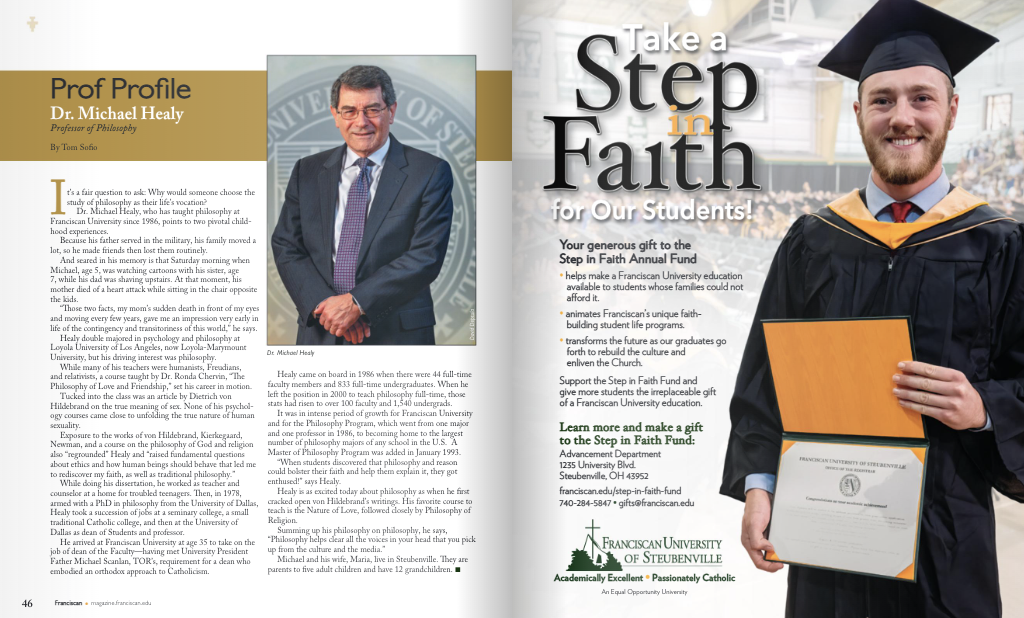The year was 1995, and Frank Hermann had a problem.
More than a decade earlier, at age 19, the Texas native had given his life to Christ. His father (a secular Jew) and his mother (a lapsed Catholic) had raised their son with little to no faith, but at the prompting of a Baptist friend, Hermann began considering Christianity’s claims. The writings of C.S. Lewis and his argument that Jesus was either “liar, lunatic, or Lord” convinced him that Jesus was indeed the Son of God.
Hermann spent the next 12 years as a Baptist. Contemplating a call to ministry, he majored in biblical studies at Chriswell College in Dallas. He then briefly considered working as a Bible translator. After attending Wycliffe Bible Translators’ Summer Institute of Linguistics, however, he concluded that wasn’t the path for him either. So, he returned to school, earned his BA in English and MA in applied linguistics, both from the University of Houston, and eventually settled into a career teaching English at a community college in Texas.
And that brings us to 1995 and Hermann’s problem. Not long before, he had met and begun dating Thuy. Hermann was smitten but also concerned. Thuy was Catholic, and Hermann, being a good Baptist, felt obligated to educate her on the errors of the Church. He just wasn’t sure how to go about doing that.
“I had read books by Protestant theologians on Catholicism,” he recalls. “I recognized, though, that I needed to look at what Catholics said about Catholicism.”
That thought had just begun to form in his mind when Hermann walked into a used bookstore and stumbled upon a copy of Dr. Alan Schreck’s book Catholic and Christian. The title struck him as an oxymoron, because, as a confirmed Calvinist, he was quite sure a person couldn’t be both. He bought the book, gave it a read, and decided he needed to do his own research on Schreck’s claims.
“I’d read Augustine and Jerome but not in context,” Hermann explains. “So, I went back and started at the very beginning. I spent every spare moment reading the Fathers and came to the conclusion that whatever the early Church was, it wasn’t Baptist. It wasn’t Protestant at all.”
More time, prayer, and reading eventually convinced Hermann the early Church was indeed Catholic. In 1996, with the help of a local priest, Hermann entered the Church. A few months later, he married Thuy.
Hermann continued teaching in Texas for another decade. At the same time, he began working on his PhD in English, specializing in rhetoric and composition, at Indiana University of Pennsylvania. His dream was to teach English and direct a writing center at a Catholic university. So, in 2005, when a position to do just that opened at Franciscan University, he applied immediately. The following summer, Hermann, Thuy, and their three young children moved to Steubenville.
Fifteen years (and one more child) later, Hermann is grateful to have both escaped the Texas heat and made a home for himself at a university where he can speak freely about the faith.
“I couldn’t do that where I taught in Houston,” he says. “It would have cost me my job. You were supposed to keep faith in your pocket and not let anyone see it. At Franciscan, it couldn’t be more different.”





